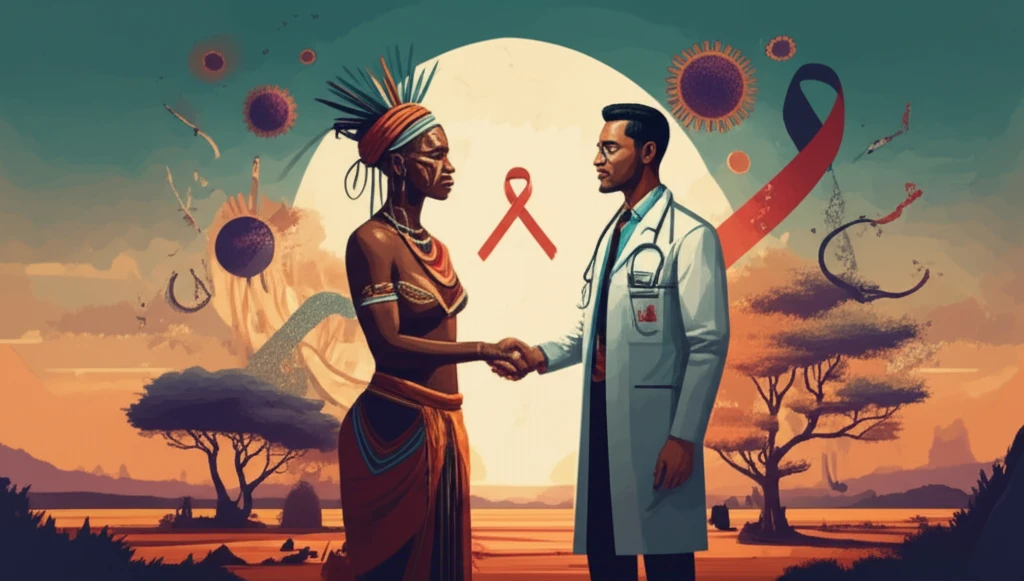
Decoding HIV in Rural South Africa: Can Tradition and Modern Medicine Coexist?
"Exploring innovative ways to combat the HIV/AIDS epidemic by bridging the gap between traditional beliefs and biomedical science in rural South Africa."
In the fight against HIV/AIDS, a one-size-fits-all approach simply doesn't work. Cultural beliefs, traditional practices, and access to healthcare all play a significant role in how communities respond to the epidemic. This is especially true in rural South Africa, where traditional healing practices are still common.
A recent study published in the SAHARA-J: Journal of Social Aspects of HIV/AIDS, sheds light on an innovative approach to tackling HIV in rural South Africa. The research explores how a community-university partnership is working to bridge the gap between traditional beliefs and biomedical science, ultimately improving health outcomes for people living with HIV.
The initiative focuses on 'medical pluralism,' or the coexistence of different healthcare systems (traditional and modern) within a community, and its impact on HIV treatment and prevention. By understanding the intersection of these systems, the project aims to reduce confusion, increase adherence to antiretroviral therapy (ART), and decrease stigma associated with HIV/AIDS.
Understanding Medical Pluralism and HIV/AIDS in South Africa

Medical pluralism is a reality in many parts of the world, particularly in Africa. In South Africa, many people consult traditional healers alongside or instead of seeking care from Western-trained doctors. This can create challenges when it comes to HIV/AIDS, as traditional beliefs about the cause and treatment of illness may differ from scientific understanding.
- Traditional Beliefs: Rooted in cultural practices and spiritual interpretations of illness.
- Biomedical Models: Focus on scientific understanding of disease, biological processes, and specific treatments.
- Consequences: Cultural interpretations can sometimes delay seeking biomedical interventions, affecting treatment outcomes.
Moving Forward: Building Bridges for Better Health
The study's findings suggest that by acknowledging and addressing the influence of traditional beliefs, healthcare providers can build trust and improve health outcomes. This initiative offers valuable lessons for other communities facing similar challenges in the fight against HIV/AIDS. The path forward involves embracing cultural sensitivity, fostering open communication, and integrating traditional and modern medicine to create a more effective and equitable healthcare system for all.
